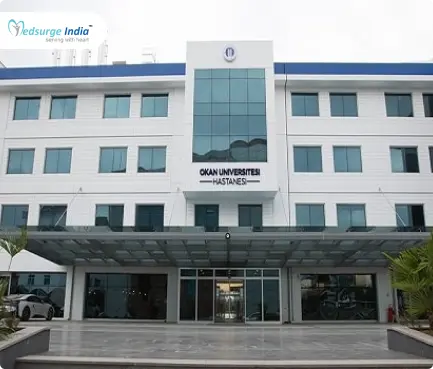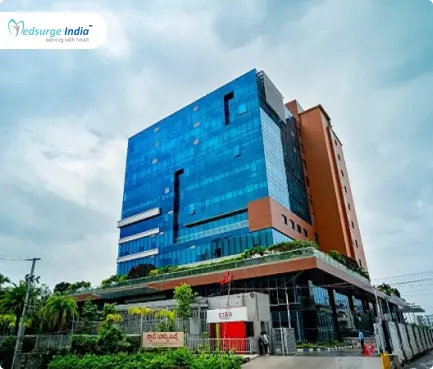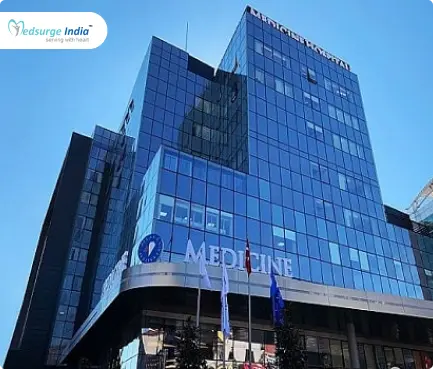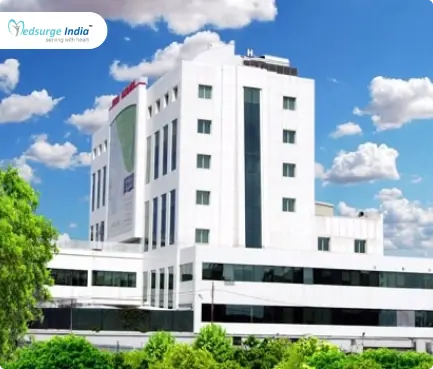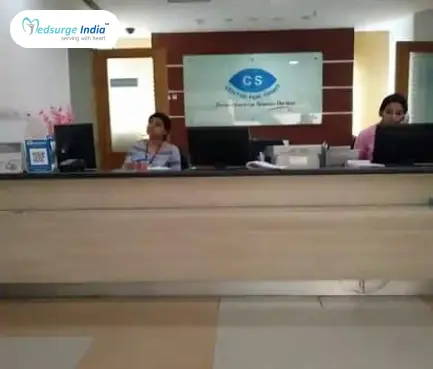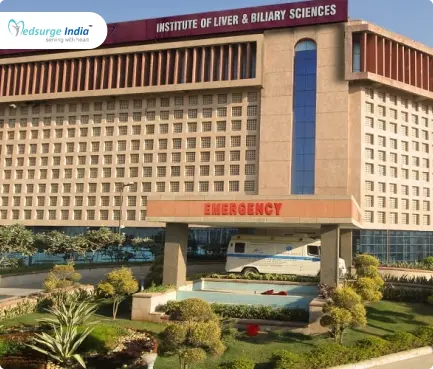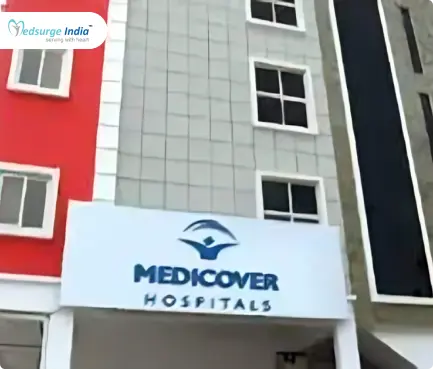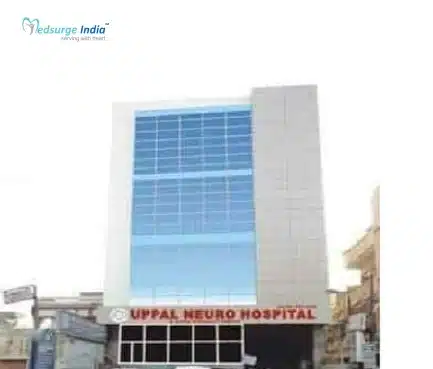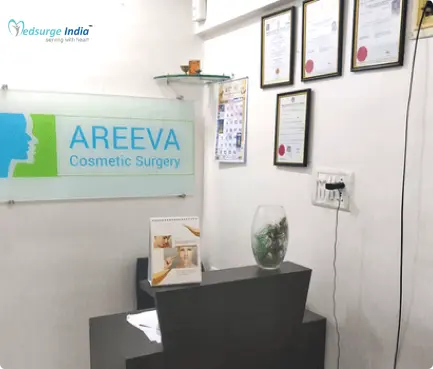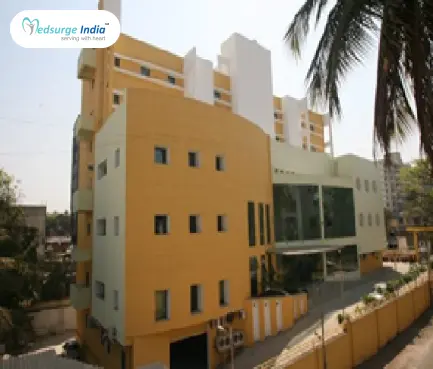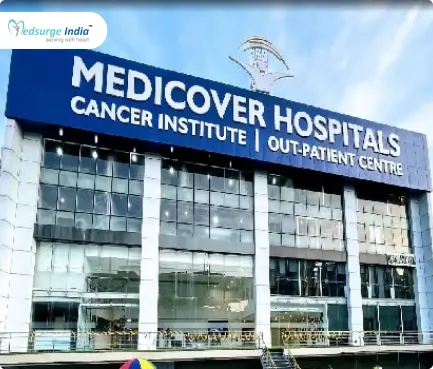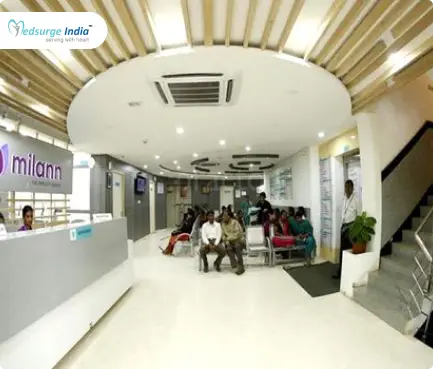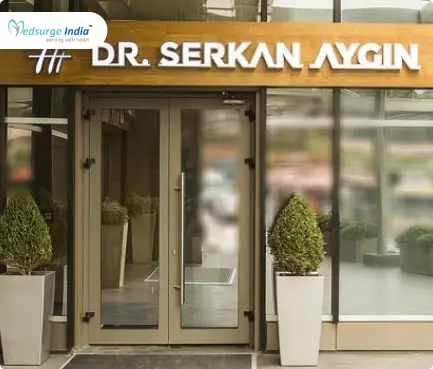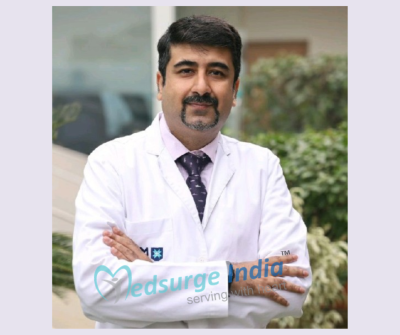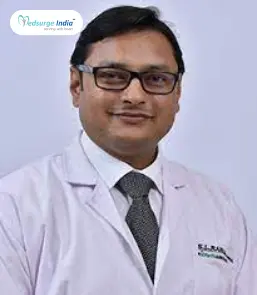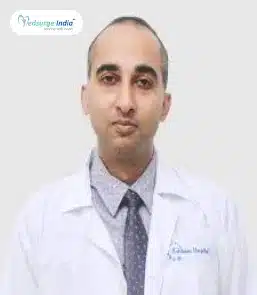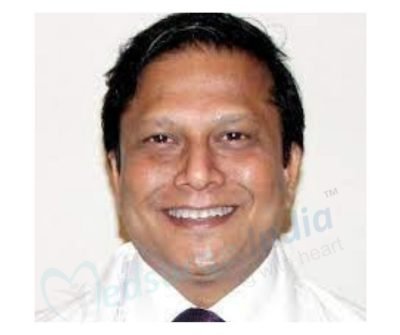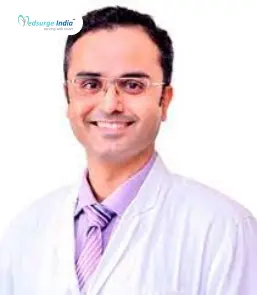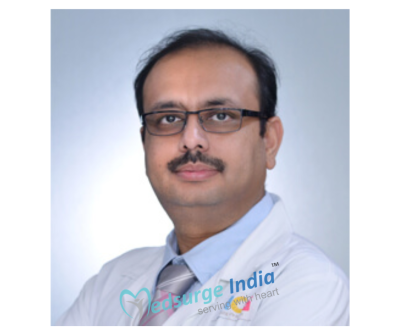
In terms of head and neck cancer, the most prevalent type is oral cancer, or mouth cancer as it is sometimes called. The majority of people affected, on average, are those over the age of 60. A lot of places in your mouth are affected by oral cancer, including your lips, your tongue, your roof, and your floor. Additionally, it has an impact on your oropharynx, which includes the roof of your mouth, tonsils, and the sides and back of your throat.
Oral cancer surgery in India is less costly than in other wealthy countries. The accomplishment was made feasible in part by the sophisticated medical equipment employed in Indian hospitals as well as the skills of oral and maxillofacial surgeons and otolaryngologists. Along with these advantages, one of the key elements enhancing India’s image overseas is its capacity to offer inexpensive oral cancer surgery cost in India without sacrificing clinical standards.
What is Oral Cancer?
When malignant cells proliferate in the oral cavity, it is referred to as oral cancer, mouth cancer, or oral cavity cancer. The lips, tongue, mouth floor, and other areas of the oral cavity all contain it.
Oral cancer is a frequent condition that, if detected and treated quickly, can be totally cured. Due to how simple it is to inspect the lips and mouth, any doctor or dentist can frequently detect oral cancer in its early stages. The most typical kind of mouth cancer is called squamous cell carcinoma.
Types of Oral Cancer
A series of cancers known collectively as oral cancer can appear in the mouth and oropharynx (the middle part of the throat). There are several forms of oral and tongue cancer:
- Gums
- Tongue
- Palate of mouth
- Mouth floor
- Near the cheek region
- Lips or nearby region
If you experience a problem in any of these areas, you should see a doctor. Also, its classified according to the cell type cancer begins in:
Squamous cell carcinoma — many frequently accounting for 90 percent of their oral cancer cases
Fairly commonly – Adenocarcinomas, lymphomas, sarcomas, melanomas
Want to know more about Oral Cancer? Click Here.
Signs and Symptoms of Oral Cancer
- Nonhealing ulcer in the oral cavity
- In the mouth, you’ll see red or white patches
- Weight loss
- Numbness
- Bleeding mouth sores
- Difficulty chewing /swallowing
- Ear pain
- Jaw mobility is difficult, and the denture’s fit has changed.
- Hoarseness of voice
Oral Cancer Surgery Cost In India
Comparatively speaking to other nations, the price of oral cancer surgery in India is much more affordable. Additionally, the scope and quality of medical treatment and services offered are comparable to those found in the world’s top hospitals. Even after travel, lodging, and food costs are subtracted, Oral cancer surgery cost in India starts at 3000 USD. Additionally, the overall cost of oral cancer surgery in India will depend on the sort of therapy you require and the results of your examination such as:
- The price is dependent upon the kind of therapy if it is a Laryngectomy or Chemotherapy and the stage of illness.
- The patient must stay in the hospital for about 5 days and 14 days in the surrounding area.
- Tests Necessary to diagnose varicose Cancer comprise X-rays, CT scans, MRI, and PET scans.
Different Types of Treatments for Oral Cancer Surgery
| Treatment | Starting Price |
| Surgery | USD 7000 |
| Chemotherapy | USD 1200 |
| Radiation Therapy | USD 2600 |
| Immunotherapy | USD 600 |
| Targeted Therapy | USD 800 |
Cost of Oral Cancer Surgery in Different Cities in India
| Cities | Starting Price |
| Delhi | USD 3000 |
| Gurgaon | USD 3200 |
| Noida | USD 3000 |
| Mumbai | USD 3500 |
| Hyderabad | USD 3000 |
| Chennai | USD 3100 |
| Kolkata | USD 3000 |
| Bangalore | USD 3600 |
Note: Keep in mind that the above-mentioned cost provided is solely for the treatment. The overall cost of oral cancer surgery in India will be determined based on several factors.
Factors That Can Affect Oral Cancer Surgery Cost in India
Various factors can affect the cost of oral cancer surgery in India. Your budget is greatly impacted by numerous elements that fail under pre and post-treatment costs. Below are the various factors that can affect the cost of oral cancer surgery in India.
- Medication costs: Certain medicines can influence the overall cost of the treatment.
- Patient Condition: The complexity of the disease along with the patient’s overall health can affect the duration of treatment, impacting the cost.
- Duration of treatment: Longer treatment courses involving multiple visits can lead to higher cumulative costs.
- Geographical location: Cost can vary widely depending on the region in India.
- Hospitalization expenses: The length of hospital stay and the level of nursing care required by the patient can add to the treatment expenses.
- Government policies and subsidies: Government healthcare schemes and subsidies can reduce out-of-pocket expenses for patients, affecting the affordability of the treatment.
- Medical tourism packages: Curated packages for international patients can include various services at a bundled cost, influencing the overall expense of treatment in India.
- Hospital reputation and infrastructure: Prestigious hospitals with state-of-the-art facilities may charge more for their services.
- The expertise and experience of medical professionals: Ongologist with extensive experience and recognition often command higher fees, contributing to the treatment cost.
- The type and frequency of diagnostic procedures: Regular monitoring with advanced imaging and laboratory tests can increase treatment costs due to the high price of these diagnostic methods.
- The choice of treatment modality: Opting for newer or more advanced treatment options or precision medicine can be more expensive than traditional approaches.
Oral cancer surgery cost in India offers exceptional medical services and facilities to patients who come for treatment in India also their facilities rival those of well-known healthcare centers worldwide. Accommodation, meals, and transportation expenses are also covered. Furthermore, a foreign patient can save up to 30-40% of the oral cancer surgery cost in India when compared to their native countries.
Diagnosis of Oral Cancer
- Early detection of oral cancer is generally possible, tissue changes could be felt and seen easily.
- Private History of habitual tobacco use, alcohol generally noticed
- Medical Examination – clinical evaluation of oral and additional oral and perioral tissues. Largely erythroplakia is more severe with a greater incidence of becoming cancerous.
- A biopsy was conducted to rule out malignancy.
- Imaging research such as – X-rays, CT, MRI, and PET scans help stage the oral cancer
Staging of Oral Cancer
Imaging tests are used to determine the stage of cancer if a biopsy indicates a malignant diagnosis. Staging helps in treatment planning if the wrong staging is then the wrong treatment option selection
- Staging is based on three key components (TNM system of staging )
- A tumor (T)- is the size of the tumor
- Node (N )-whether the cancer is present in the lymph nodes
- Metastasis (M)- whether cancer has spread to other parts of the body
- A number 0-4 is assigned, the higher the number greater the severity of the disease
Get Free Cost Estimation
Procedure
Treatment of Oral Cancer
Oral cancer treatment options are influenced by the patient’s age and health as well as the cancer’s stage.
Based upon the point where the cancer is diagnosed, therapy is intended, if incorrect staging then wrong choices.
Surgery, Radiation, and Chemotherapy can be used alone or in conjunction with the best possible results.
Surgery
Surgery for oral cancer is most frequently performed on:
- Primary tumor surgery: The removal of tumors through the mouth or a neck incision by medical professionals.
- Glossectomy: This is when your tongue is completely or partially removed.
- Mandibulectomy: This procedure removes the jawbone to treat mouth cancer.
- Maxillectomy: In this procedure, the hard palate, or bone roof of the mouth, is partially or completely removed.
- Sentinel lymph node biopsy: This procedure enables medical professionals to determine whether cancer has progressed past the primary oral malignancy.
- Neck dissection: This procedure is used to remove lymph nodes from your neck.
- Cosmetic reconstructive surgery
The surgeon inserts grafts of skin, bone, or muscle to help patients deal with aesthetic deformity and problems eating and swallowing.
2. Radiation treatment
In this form of treatment, high-energy X-rays are used to destroy the cancerous tissues in the body. Radiation treatment may be enough to treat the early phase of prostate cancer. It entails
- External beam radiation
- Brachytherapy
After radiation impacts:
- Mouth sores
- Bleeding gums
- Jaw stiffness
- Dry mouth
3. Chemotherapy
During the treatment of cancer, powerful drugs are applied in order to destroy the cancerous cells. The after-effects of chemotherapy depend on the kind and quantity of medication received and finish soon after the treatment is finished. A number of the following effects of chemotherapy:
- Fatigue,
- Nausea, vomiting
- Hair loss
- Weak immune system
4. Targeted therapy
Targeted therapy is a sort of cancer treatment that specifically identifies and kills certain cancer cell types without harming healthy cells. Laboratory-produced immune system proteins called monoclonal antibodies are utilized to treat cancer.
5. Immunotherapy
Immunotherapy is a form of cancer treatment that activates your body’s defense mechanisms to combat the illness.
Best Oncologist in India
- Dr. Vinod Raina
- Dr. Ankur Bahl
- Dr. Prasad
- Dr. Niranjan Naik
- Prof. Dr. Suresh H. Advani
- Dr. Rajesh Mistry
- Dr. Raja Sundaram
- Dr. Mahadev P
- Dr. Senthil Kumar
- Dr. Subrata Saha
- Dr. Vedant Kabra
- Dr. Peush Bajpai
- Dr. Deenadayalan
Risk Factors For Oral Cancer
- Lifestyle – People ingesting large quantities of alcohol, tobacco, and smoking
- Diet, Obesity, Age –risk increases with age
- Genetic – Family history of oral or any type of cancer
- HPV disease – the existence of human papillomavirus raises the Odds of oral cancer
- Chronic sunlight/radiation vulnerability /occupational hazard
- Gender- most commonly found in men, double over women
- Immune system suppression –sufferers taking drugs to suppress the immune system might have an increased risk of lung cancer.
How to Choose a Hospital For Oral Cancer Surgery In India
Hospitals that perform oral cancer surgery in India are well-known for their hospitality and patient care services providing the finest hospital and oral and maxillofacial surgeons and otolaryngologists in India. However, choosing a suitable hospital for oral cancer surgery in India can be difficult for an international patient. It is a significant decision that must be made with several factors in mind, including:
- Quality certificates and accreditations
- Hospital and transportation facility location
- Team of doctors and surgeons
- Advanced diagnostic and therapeutic equipment
- International patient assistance
Why Do Individuals Prefer to Have Oral Cancer Surgery in India
Certainly, India is a popular destination for those seeking Oral cancer surgery and medical procedures. Oral cancer surgery cost in India is typically a fraction of the cost of a comparable procedure and consideration in the United States and other developed countries. In any case, the oral cancer surgery cost in India may vary depending on the type of medical procedure, the use of inserts, and the patient’s other conditions. As a result, the final charges for oral cancer surgery in India given to patients are entirely based on their clinical reports, as well as the patient’s current condition, type of medical procedure, type of room, the specialist’s skill, and hospital brand.
The best hospitals for oral cancer surgery in India provide comprehensive appropriate treatment, including comprehensive pre-operative evaluations, minimally invasive surgical options, and post-operative rehabilitation programs. Patients can expect personalized treatment, individualized attention, and compassionate care at these medical facilities. The hospitals are accredited by top international organizations such as the National Accreditation Board for Hospitals and Healthcare Providers (NABH) or the Joint Commission International (JCI).
How Can Medsurge India Help?
Medsurge India is a prestigious support system for patients looking for doctors, hospitals, and specialized treatments. Our staff will provide you with a list of licensed, renowned, and trustworthy physicians and medical facilities in relation to your medical needs. We offer a variety of treatment options to fit your individual needs, as well as a budget-friendly approach. Besides that, we are able to assist patients in obtaining travel authorizations, and medical visas, as well as a wide range of other things in the process of their treatment.
The Most Important Frequently Asked Questions
Q: What Is the Oral Cavity?
A: Oral cavity involves the gums, teeth, soft and hard palates, tongue, tonsils, and salivary glands. These dental arrangements aid an individual to eat, drink, talk & breathing. It’s the entry of the adrenal gland and initiates the digestive process by salivation.
Q: What Is the Most Common Type of Oral Cancer?
A: More than 90 percent of cancers that occur in the oral cavity are squamous cell carcinoma.
Q: How Does the Usage of Tobacco Affect Oral Cancer?
A: Tobacco usage is the most common risk factor for oral cancer.
Q: How Can Oral Cancer Be Prevented?
- Avoidance of tobacco/smoking
- Ensuring the intake of a well-balanced diet
- Use of sunblock
- Timely treatment in case of HPV infection
- Regular check-ups/awareness of symptoms
Q: What Is the Importance of Early Detection of Oral Cancer?
A: If discovered early and timely therapy began, the mortality rate in oral cancer may be significantly diminished thus early detection may improve the odds of treatment success.
Q: What Is a Biopsy?
A: Taking tissue out to assess under a microscope for cancer cells is a biopsy. It is the only real way to diagnose if the abnormal tissue mass is cancerous.
Q: What Is the Prognosis of Oral Cancer?
A: It Is based on the part changed, whether first point or metastasis. In the first stage, complete treatment is possible in 90% of cases. The 5-year survival rate for localized oral cancer is approximately 80 percent.
Q: What Are the Complications of Mouth Cancer Treatment?
- Can affect the cosmetic appearance disfigurement after surgery
- Difficulty in speech, swallowing
- Side effects of radiation therapy and chemotherapy
- Depression
Q: What Is the Meaning of the 5-year Survival Rate?
A: 5-year survival rate means the percentage of patients who live at least 5 years after their cancer has been diagnosed.
Q: What Is the Importance of Staging?
- Staging helps plan treatment, whether surgery is required and the type of surgery to be performed if associated with radiation and chemotherapy will help.
- Staging lets us know the advancement of the disease process and the chances of recovery.
- Also useful in telling about the recurrence of the disease process.
Q: What Are the Different Stages of Oral Cancer?
A: Staging is based on TNM (size of the tumor, nodes, and metastasis) classification
- Stage 0- in this stage of cancer in situ
- Stage I – early-stage cancer
- Stage II and III- larger cancer or tumor that has grown deep into nearby tissue or lymph but not to other parts of the body
- Stage IV –cancer spread to other parts of the body
Top Hospitals for Oral Cancer Surgery in India
Top Doctors for Oncology and Oncosurgery
Dr. Parmod Kumar
Experience: 15+ years of experience
Max Super Speciality Hospital Dehradun
Dehradun, India
Dr. Sudeep Sarkar
Senior Consultant
Experience: 35 years of experience
Nanavati Super Specialty Hospital Mumbai
Mumbai, India
Dr. Pradeep Jain
Director
Experience: 33 years of experience
Fortis Hospital Delhi Shalimar Bagh
New Delhi, India
Dr. Ankur Bahl
Director
Experience: 14 years of experience
Fortis Memorial Research Institute, Gurgaon
Gurgaon, India
Dr. Sridhar P S
Senior Consultant , MBBS, MD, DNB
Experience: 20 years of experience
Bangalore, India
Dr.Pranav Chadha
Consultant
Experience: 13 years of experience
Kokilaben Dhirubhai Ambani Hospital Mumbai
Mumbai, India
Dr. Amal Roy Choudhary
Director
Experience: 18 years of experience
Fortis Memorial Research Institute, Gurgaon
Gurgaon, India
Dr. Roshan Dixit
Consultant
Experience: 7 years of experience
Medanta – The Medicity, Gurgaon
Gurgaon, India
Dr. P. Dhanasekar
Consultant
Experience: 19 years of experience
Apollo Cancer Hospital, Chennai
Chennai, India
Dr. Rathna Devi
Senior Oncologist
Experience: 25 years of experience
Apollo Hospitals, Greams Road, Chennai
Chennai, India
Dr. Mou Roy
Senior Consultant
Experience: 27+ years of experience
BALCO Medical Centre, Raipur
Raipur, India
Dr. Manisa Pattanayak
Senior Consultant
Experience: 26 years of experience
Max Super Speciality Hospital Dehradun
Dehradun, India
Dr. Madhu Y C
Senior Consultant MCh, MS, MBBS
Experience: 25 years of experience
Fortis Hospital, Bangalore (Cunningham Road)
Bangalore, India


